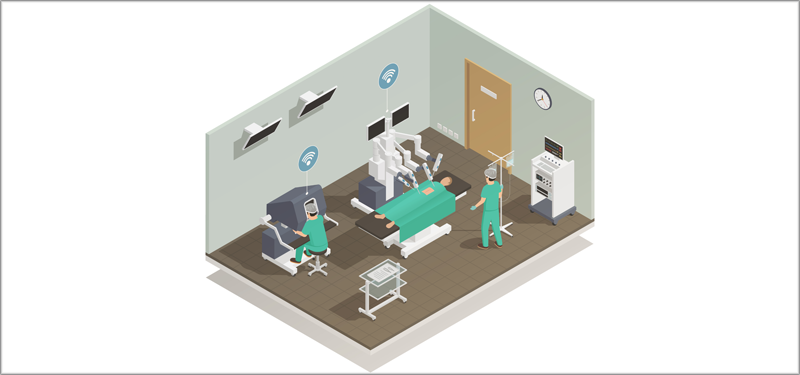
Predictive eBoost’s project aims to improve the performance of electric vehicles’ powertrain and batteries
April 21, 2022
Hospitals 4.0 with more effective management due to machine learning algorithms
May 2, 2022Future challenges in data processing and connectivity
Future infocommunication services will need to address the challenge of processing the large volume of data produced by new communication networks (the future Internet of Everything, IoE). In turn, these networks must strive to deliver increasingly fast, reliable, immediate and ubiquitous connectivity.
The RODIN project, in which the Signal Processing and Communications Group (SPCOM) participates, seeks to provide solutions to two major challenges that hinder the communication and processing of large volumes of data: interference management on wireless networks and information processing against integrity and security threats.

First challenge: interference cancellation
Regarding interference management, opportunistic communication systems will be designed to monitor free radio resources (cognitive radio) and adapt the transmitted signal dynamically to avoid interference with other network users. In addition, in massive multiple access systems, which consist of multiple devices connected simultaneously with a central node, interference cancellation schemes will be developed with latency and energy-consumption constraints. In full-duplex communications (two-way simultaneous connection in the same band), self-interference cancellation schemes will be designed in the case of multi-antenna transceivers.
Second challenge: integrity and security of data
Regarding the integrity and security of information, new methods for detecting corrupted data, anomalies and attacks will be designed to protect big databases (e.g. the IoT). In addition, algorithms will be developed to detect hidden dependencies in large databases, using statistical analysis and information theory tools such as correlation and mutual information. Finally, new methods for protecting databases against potential attacks will be studied, as well as the machine learning algorithms used to process them.
RODIN 2020 - 2023
The Signal Processing and Communications Group (GPSC) of the University of Vigo is also a partner of the RODIN project and project coordinator. The project lasts for three years (June 2020 to May 2023) and is funded by the Ministry of Science and Innovation with a budget (UPC) of 117,854 euros.
Technology
Would you like to know more?
Projectes Relacionats
- The Visualisation, Virtual Reality and Graphic Interaction Research Group (ViRVIG) at the Universitat Politècnica de Catalunya - BarcelonaTech (UPC) has participated in the XR4ED project, an initiative that connects the educational technology (EdTech) and Extended Reality (XR) sectors, with the aim of transforming learning and training across Europe.
- The inLab FIB at the UPC has collaborated with Lizcore® for the development of a proof of concept based on artificial intelligence to improve safety in climbing with autobelay devices. The system allows the automatic and accurate detection of risk situations before starting a route.
- Researchers from the Centre for Image and Multimedia Technology of the UPC (CITM) and from the DiCode research group (Digital Culture and Creative Technologies Research Group) of the Universitat Politècnica de Catalunya – BarcelonaTech (UPC) have worked on the project The Eyes of History, an initiative of the Catalan Agency for Cultural Heritage that offers an immersive view of Catalan cultural heritage. It is especially aimed at the first and second cycles of secondary education and was created to bring heritage into the classroom. Its goal is to bring the history and monuments of Catalonia closer in a vivid and innovative way, using tools such as virtual reality and new museographic narratives.
- City and Play is a social action project coordinated by researchers from the Centre for Image and Multimedia Technology (CITM) and the DiCode research group (Digital Culture and Creative Technologies Research Group) of the Universitat Politècnica de Catalunya – BarcelonaTech (UPC), the Universitat Oberta de Catalunya (UOC) and the University of Barcelona (UB), and funded by Barcelona City Council. The aim of the project is to promote civic competences and reflection on the urban environment among adolescents through the creation of an open framework that uses methodologies based on play, co-creation and storytelling.




